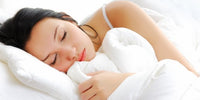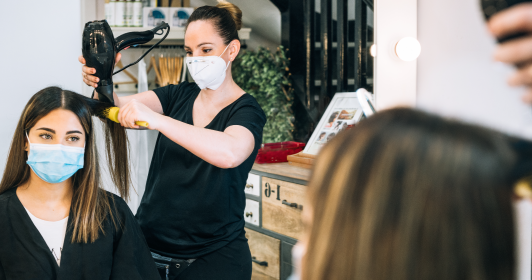
10 Natural Ways To Help You Sleep Better
, by Dr. Jeff Pearl, MD, 8 min reading time

, by Dr. Jeff Pearl, MD, 8 min reading time

Time for me to follow my own advice – After four years of medical school and nine years of residency and fellowship, like many others in the medical field, military and other non-traditional work hour jobs, I know firsthand about sleep deprivation.
Unfortunately, for millions of Americans, sleep deprivation and insomnia becomes a way of life that we unwittingly accept, not recognizing the deleterious effects it has on our physical, mental and emotional health. Cranky, anyone? The effects of insomnia are often manifested by daytime drowsiness, fatigue, irritability, and difficulty concentrating. Except for the difficulty concentrating, this describes almost every surgical and medical resident, plus, many of our co-workers, our bosses, spouses, and even ourselves.
So, how much sleep do we need? What keeps us from sleeping well even when we have time? And—are there natural ways to improve our sleep?
A line from the movie Stepbrothers sums up the ‘how much’ pretty well—“You better get to bed; you need your eight hours. You have job interviews tomorrow.” Most people get a sense of how much sleep they feel they need and it does vary among individuals anywhere from 6-10 hours each night.
However, when we talk about sleep— that means the time you are actually asleep, not in bed watching TV (a no-no we will discuss later), or waking up multiple times during the night. REM sleep, the time during which we dream, is thought to be critical to waking up refreshed mentally and emotionally. Unfortunately, one has to be asleep for a long enough uninterrupted period of time to have good REM sleep.
Most pets such as dogs and cats sleep at least 12 hours in a day. How many cranky pets do you know? Not many. The bottom line on this is to keep track of both the quality and hours of sleep and how you feel the next day. This will help determine the amount of sleep you need. If you are not allowing yourself enough time for sleep, readjust your schedule. An adjustment of your schedule may help you be more efficient at things like your job, relationships and even your workouts.
Increasing your endurance level requires the right combination of exercise and supportive nutrients. Consider adding these popular athletic supplements to your routine.


CAFFEINE
Avoid caffeine at least 6 hours before bedtime. Sometimes even 10-12 hours may be needed. Many teas, chocolate, medications and other products contain stimulants such as caffeine.

Credit: Maridav / Shutterstock.com
EVENING EXERCISE
Exercising in the evening can make& it hard to fall asleep. In general, try to avoid it. For me the effect is variable – intense cardio can make me tired and fall asleep easy, but not stay asleep.


AVOID TV OR COMPUTER USE
Avoid watching TV for any extended period of time, which goes for other electronic stimulation as well such as your tablet or computer. Electronic stimulation has been shown to negatively impact your ability to fall asleep. The bedroom should also be dark, quiet and stress-free.

NIGHT TIME STRESS
Try to clear you mind with something relaxing – meditation, prayer, or a good book. Stress can keep you up at night and you’re likely not going to solve any of them while in bed anyway.


The two most common over-the counter sleep aids are Melatonin and Valerian.
Melatonin is a natural hormone made by our Pineal Gland which regulated our sleep cycles. It is regulated, to some degree, by exposure to light, and is thought to be partly responsible for hibernation in animals. Melatonin is readily available and has been shown to help one fall asleep quicker and perhaps stay asleep. It is commonly used by travelers for long airplane flights. A does of 0.1-0.3 mg is generally effective, and Melatonin is considered to be very safe. As with all sleep aids, some people report grogginess the next day or despite falling asleep, it does not keep them asleep all night.
Valerian is a herbal extract that has been reported to induce sleep, or decrease the latency period-time to fall asleep in many people. Less information is known about its long-term use, and it may work better in those with chronic sleep problems compared to using for an overnight airplane flight.
5-HTP, a derivative of Tryptophan, increases the production of Serotonin, which is the building block for Melatonin. As such, it has been used successfully as a sleep aid and may help promote positive feelings and relaxation.* (Most of the common prescription anti-depressants used today work through serotonin.) FYI – Turkey is high in tryptophan—and I for one, cannot keep my eyes open after a turkey dinner.
Other natural supplements or foods such as non-caffeinated tea such as Chamomile, your grandmother’s warm-milk, and a hot shower or Jacuzzi, may all promote sleep.
Of course, there are many OTC and prescription medications to help with sleep- the most common are anti-histamines which have the ‘side-effect’ of drowsiness, or the prescription drug Ambien. While perhaps helpful as a one-time use such as for a long plane flight, or a stressful life event, these are not recommended for habitual use and can have significant side-effects.

Optim Nutrition Advanced Sleep Formula with Sensoril is an advanced sleep formula featuring Sensoril®, an adaptogen that has been shown to increase the body's ability to resist and recover from stress while stimulating an overall feeling of balance.* L-Tryptophan, an essential amino acid has been shown to support sleep and relaxation.* You'll find even more sleep-promoting or stress-easing nutrients in this herbal formula, including Melatonin, Valerian and Theanine.* See what's inside:

Article By Jeff Pearl, MD
Dr. Jeff is a trained general, pediatric cardiac, and transplant surgeon. Nutrition has always been an important concern for surgeons in regards to patients healing from surgery. He has had a longstanding interest in health, nutrition and supplements, and been an advocate of the use of nutrition and supplements in the hospital setting to aid in his patient’s recovery. He has a history of basic science and clinical research and a keen ability to interpret studies and statistics to determine their true significance. He is the father and step-father to several teenage athletes and knows firsthand the challenges they face in balancing their time, eating habits and use of supplements. He is adamant about trying to educate our youth about better nutrition. Dr. Jeff recognizes the challenges that healthcare faces and the need for people to take charge of their own health and disease prevention. He loves being outside and is one of those crazy few seen hiking or biking in the middle of the day in summer.


![PRōZE Review [2020 Update]](http://hihealth.com/cdn/shop/articles/cbd_insider_article_graphic_featured_image-11.jpg?v=1591495027)